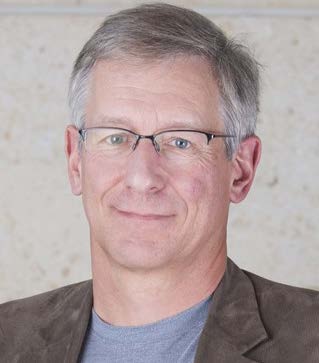
Recently, Dr. Steller and his colleagues have also focused on the processes that cells use to remove unwanted and toxic proteins. The long-term health of cells critically relies on selective protein degradation, because damaged or abnormal proteins can clump together, impairing cell function and causing cell death. Many neurodegenerative diseases—including Alzheimer’s, Parkinson’s, and Huntington’s diseases, as well as frontotemporal dementia, ALS, and retinitis pigmentosa—are caused by the accumulation of protein aggregates. Dr. Steller has discovered a mechanism that enables cells to boost the assembly of proteasomes, molecular machines that are responsible for the regulated removal of intracellular proteins. He and his colleagues are exploring ways to stimulate this cellular protein-clearance mechanism—work aimed at the development of novel treatments for age-related neurodegenerative diseases.
Dr. Steller earned a Diplom (equivalent to an M.Sc.) in microbiology from the University of Frankfurt and a Ph.D. in molecular biology from the European Molecular Biology Laboratory and the University of Heidelberg. After postdoctoral research at the University of California, Berkeley, he joined the Massachusetts Institute of Technology as an assistant professor of neurobiology, rising to professor. In 2000, he moved to Rockefeller as the Strang Professor and head of the Strang Laboratory of Cancer Biology and Apoptosis. Dr. Steller was also an investigator with the Howard Hughes Medical Institute from 1990 to 2016. Among many honors, he has received a Searle Scholar Award, a Pew Scholar Award, a Johnson & Johnson Focused Giving Award, and a Career Award from the International Cell Death Society.









